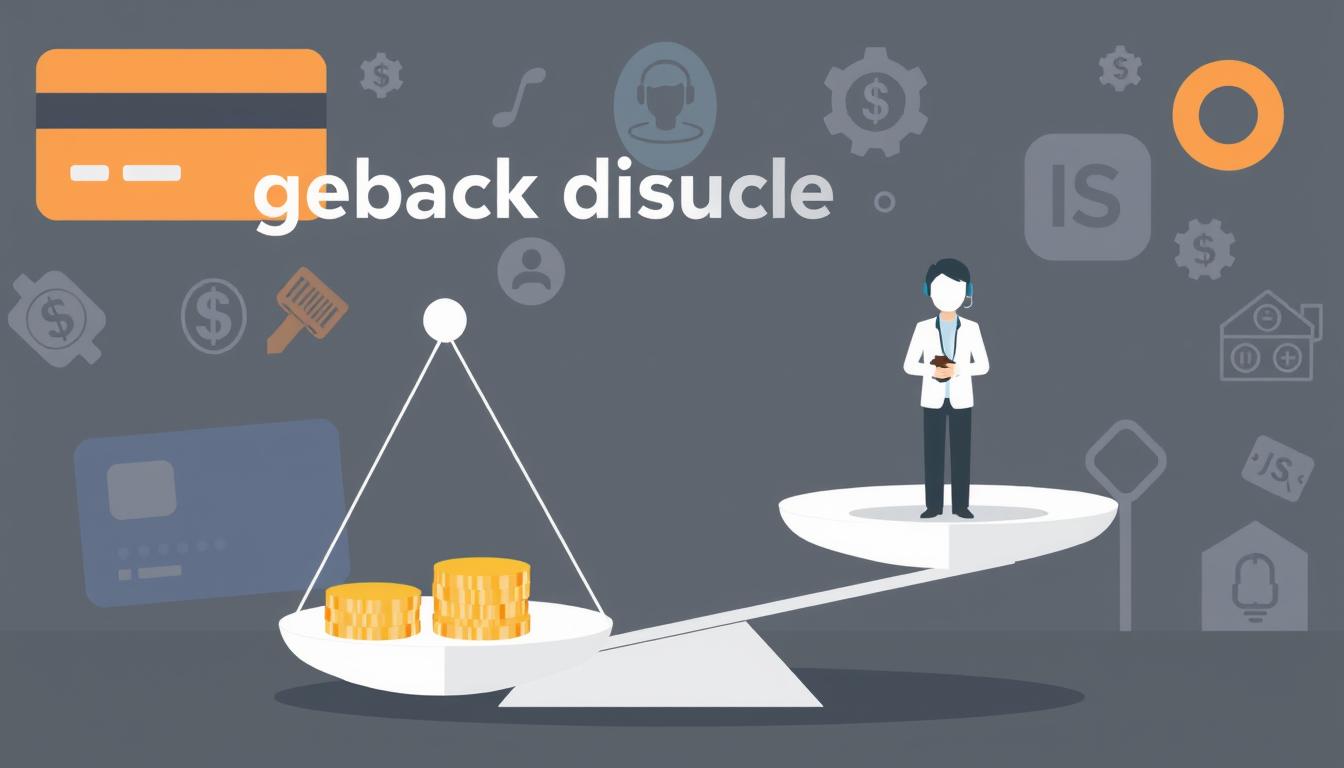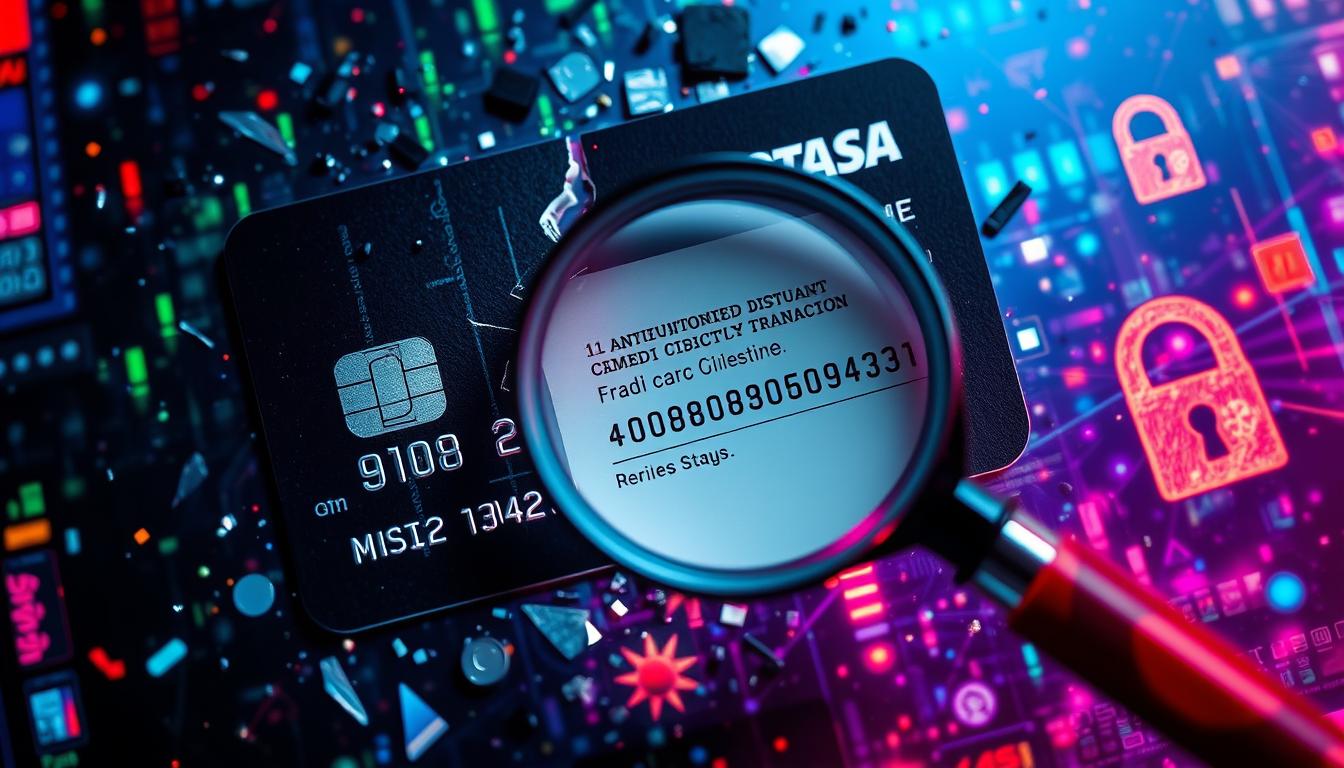Credit card disputes and chargebacks are common in today’s business world. Merchants face challenges in resolving these issues effectively. Understanding the best dispute reasons is crucial for successful resolution.
This guide will help you explore effective dispute reasons. You’ll learn how to choose the right grounds for your case. With this knowledge, you can navigate credit card disputes more confidently.
Key Takeaways
- Identify the most compelling dispute reasons to maximize your chances of success
- Understand the impact of chargebacks on merchants and the importance of effective dispute management
- Learn about the different types of chargebacks and the specific dispute reasons associated with each
- Discover strategies for gathering evidence and presenting a strong case for credit card disputes
- Explore the common dispute reasons, such as fraud, unauthorized transactions, and product/service issues
Understanding Chargeback Disputes
Chargeback disputes can seriously affect a merchant’s profits. Knowing how to handle different types of chargebacks is key. Merchants must protect their business by managing these disputes effectively.
Types of Chargebacks
Chargebacks happen for various reasons, including chargeback reasons, chargeback guidelines, and chargeback rules. Common types include:
- Unauthorized transactions
- Undelivered or unsatisfactory goods or services
- Billing errors or duplicate charges
- Subscription cancellation issues
Impact on Merchants
Chargebacks can hurt merchants financially and operationally. They may lead to lost revenue, fees, and possible account termination. Proper dispute management and dispute resolution are crucial to avoid these issues.

Merchants must stay informed about chargeback reasons, chargeback guidelines, and chargeback rules. This knowledge helps create effective strategies for dispute management and dispute resolution.
By understanding chargebacks, merchants can protect their business. They can also maintain good relationships with payment processors and customers.
Compelling Dispute Reasons
Understanding valid dispute reasons is crucial for successful chargeback management. Merchants must know which arguments are most likely to yield favorable outcomes. This knowledge equips them to handle disputes effectively.
A strong dispute reason is incorrect or missing goods/services. Customers have valid claims if they don’t receive their orders. Providing shipping tracking info or service descriptions can strengthen the dispute process.
Unauthorized transactions are another valid reason. Customers can initiate chargebacks for credit card use without their consent. Supporting evidence like police reports can bolster their case.
- Unauthorized or fraudulent transactions are another common and valid dispute reason. If a customer’s credit card was used without their knowledge or consent, they can initiate a chargeback and provide supporting evidence, such as police reports or other documentation.
- Technical billing errors, such as double billing or incorrect amounts charged, are also grounds for a successful chargeback dispute. Merchants should carefully review their records and provide the necessary documentation to demonstrate the error.
- Dissatisfaction with the quality or performance of a product or service can also be a valid chargeback dispute reason. In such cases, the customer should provide specific details and evidence to support their claim of not receiving the expected value.
Technical billing errors are valid grounds for disputes. These include double billing or incorrect charges. Merchants should review records and provide documentation to show the error.
Product or service dissatisfaction can also lead to disputes. Customers should give specific details about not receiving expected value. This evidence supports their claim.
Proper documentation is key for effective dispute management. It helps merchants navigate the process and increases chances of successful chargeback resolution.

Credit Card Fraud and Unauthorized Transactions
Credit card disputes often arise from fraudulent activity and unauthorized transactions. Merchants and consumers must know how to spot these issues. Effective dispute handling is key to protecting both parties.
Identifying Fraudulent Activities
Fraudulent credit card activities come in various forms. These include stolen cards, account takeovers, and fake or cloned cards. Merchants should keep a close eye on their transactions.
Look out for suspicious patterns or red flags. These can help catch fraud early.
- Unusually large or frequent purchases
- Transactions from unfamiliar or high-risk locations
- Attempts to make purchases using multiple declined cards
- Purchases that don’t align with the customer’s typical spending behavior
Disputing Unauthorized Charges
Quick action is crucial when dealing with fraudulent or unauthorized transactions. Disputing the charge and starting the chargeback process should be done promptly.
Here are the steps to follow:
- Contacting the credit card issuer and reporting the unauthorized charge
- Providing detailed information about the transaction, including the date, amount, and any other relevant details
- Submitting any supporting documentation, such as receipts or account statements, to demonstrate the unauthorized nature of the charge
- Cooperating with the credit card issuer’s investigation and providing any additional information or evidence as requested
Merchants can protect their business by taking proactive steps. Identifying and disputing fraudulent activities quickly helps minimize financial and reputational damage. It also safeguards against the consequences of fraudulent transactions.

| Chargeback Reason | Dispute Management Strategies | Dispute Resolution Outcomes |
|---|---|---|
| Credit Card Fraud and Unauthorized Transactions |
|
|
Product or Service Not Received
Customers often claim they never received their purchase. This can be tricky for merchants to resolve. Proper documentation is key when disputing these types of chargeback reasons.
Merchants should gather specific information to manage these disputes effectively. This includes proof of delivery and communication records with the customer.
Detailed transaction records are also crucial. These should include item descriptions, order dates, and other relevant details.
- Proof of delivery or shipping confirmation, such as a tracking number or signature from the customer
- Screenshots or copies of any communication with the customer regarding the order, including any correspondence about the missing item
- Detailed records of the transaction, including the item description, order date, and any other relevant details
With this dispute management evidence, merchants can prove delivery or attempted delivery. This helps counter claims of missing products or services.
Sometimes, customers claim non-receipt due to address changes or other issues. Even then, merchants should document their delivery attempts.
| Dispute Reason | Required Documentation |
|---|---|
| Product or Service Not Received |
|
Strong evidence is crucial for successful dispute resolution. It helps merchants defend against chargebacks for missing products or services.
What Is The Best Dispute Reason
Identifying the most effective dispute reason is vital for successful dispute management. This applies to chargeback disputes, credit card fraud, or dissatisfaction with goods or services. Understanding each scenario’s details can greatly impact the outcome.
Analyzing the Situation
To find the best dispute reason, carefully examine the issue’s circumstances. Look at the transaction type, event timeline, and relevant documents. This thorough review will help you choose the most fitting dispute reason.
Gathering Evidence
After understanding the situation, collect evidence to support your dispute. This may include invoices, receipts, shipping records, or other relevant documentation. Strong evidence strengthens your case with the issuing bank or payment processor.
| Dispute Reason | Key Evidence |
|---|---|
| Chargeback Dispute | Detailed transaction records, proof of delivery/service, and any relevant communication with the customer |
| Credit Card Fraud | Fraud detection reports, customer identification documents, and records of unauthorized transactions |
| Dissatisfaction with Goods/Services | Product return records, customer feedback, and documentation of attempts to resolve the issue |
Thorough analysis and evidence gathering can boost your chances of resolving disputes successfully. This approach helps minimize the impact on your business. Effective dispute management requires organization, preparation, and a compelling case presentation.

Technical Billing Errors
Technical billing errors can lead to valid chargeback disputes. Merchants must identify and address these issues quickly. This protects their business and maintains good customer relationships.
Double billing and incorrect amounts are common problems. Understanding these issues is key for effective dispute management.
Double Billing: Unraveling the Confusion
Double billing happens when a customer is charged twice for one transaction. This can occur due to system glitches or human error. Clear documentation is crucial for resolving these chargeback reasons.
Transaction records and customer communication can help demonstrate the error. These documents are essential for successful dispute resolution.
Incorrect Amounts: Ensuring Accurate Charges
Inaccurate billing, like overcharging or undercharging, can trigger disputes. Merchants should review their records carefully to spot and fix discrepancies.
Charging the correct amount builds trust with customers. It also helps maintain a positive reputation for the business.
Understanding chargeback reasons is crucial for handling technical billing errors. Proper documentation supports a successful dispute resolution process.
Quick action on these issues protects businesses. It also improves customer satisfaction and strengthens overall dispute management.
Dissatisfaction with Goods or Services
Customers may request a chargeback when unhappy with products or services. This process can be tricky. Knowing the best chargeback reasons and dispute management tactics is key.
Reasons for filing a chargeback include:
- The item received was significantly different from the description
- The quality of the product or service was unacceptable
- The merchant failed to deliver the item or provide the service as promised
- The customer was unhappy with the merchant’s customer service or handling of the issue
Merchants should gather proof to fight chargebacks effectively. This includes order details, customer talks, shipping records, and product photos.
- Order details and confirmation
- Correspondence with the customer regarding the issue
- Shipping or delivery records
- Photos or other evidence of the product condition
Strong evidence helps merchants resolve disputes and prevent future chargebacks. Quick problem-solving and good communication can reduce chargeback risks.
“Effective dispute management is crucial for maintaining long-term customer relationships and business success.”
Focusing on quality products and services strengthens dispute resolution strategies. This approach helps build better customer relationships and business success.
Canceled Recurring Billing
Chargebacks for canceled recurring billing are common in dispute management. These often stem from forgotten subscriptions or unhappy customers. It’s vital to grasp subscription cancellation policies and how to dispute these chargebacks effectively.
Subscription Cancellation Policies
Merchants typically have specific rules for ending recurring billing. These may include written notice, set cancellation periods, or clear cancellation steps. Knowing these policies helps you handle the chargeback process better.
You can provide needed proof to support your case. Some customers claim they tried to cancel but couldn’t due to confusing procedures. Understanding the merchant’s policies strengthens your dispute.
Clear evidence of customer efforts can boost your chances of winning. This approach helps create a stronger case in your favor.

